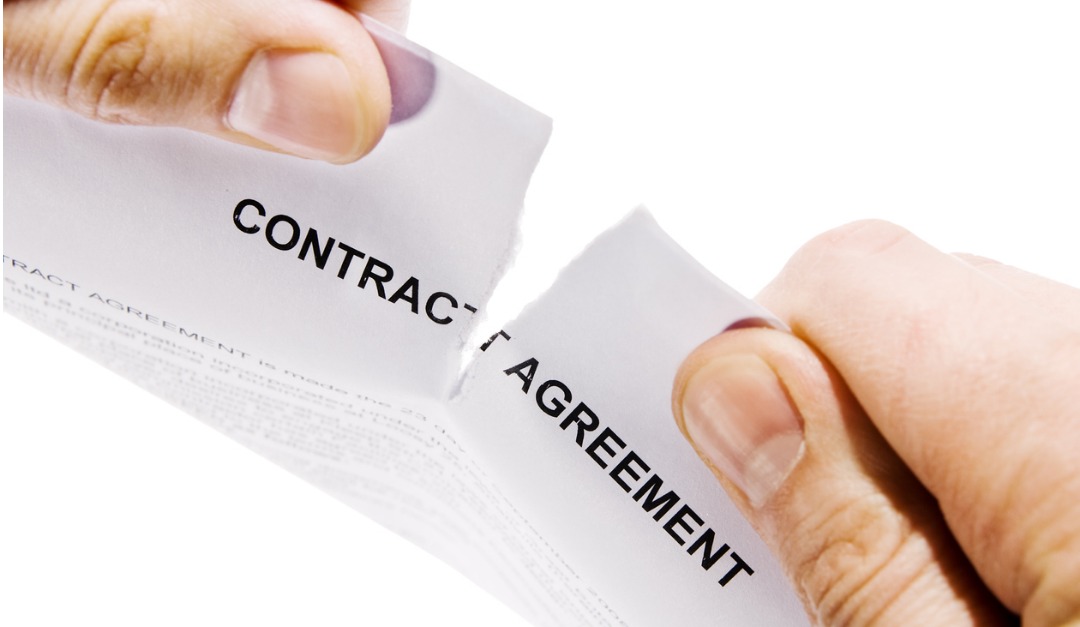
Need to Break Your Apartment Lease?
Are you relocating for a new job? Have you chosen to move in with a significant other? If you’re a renter who needs to break a lease to move out of an apartment, you’re not alone–but it could cost you.
A lease is a legally binding contract between you and your landlord, and if you decide to terminate that agreement early without legal grounds, your landlord can impose penalties. Although every lease is different, you might be subject to fees, have to pay for the remaining months of your lease, or forfeit your security deposit. Even worse, not paying a required penalty could destroy your credit and lead to a lawsuit.
Check Your Lease
If you’re considering breaking your lease, find and thoroughly read the rental agreement you signed. Look for an early termination or opt-out clause that specifies rules and penalties. If your lease doesn’t have an opt-out clause, you could be responsible for paying rent for the rest of your lease period.
Know Your Rights
There are legitimate reasons for breaking a lease that protect you from penalties. The laws vary by state, but legal reasons might include an uninhabitable property, military duty, a serious illness or domestic abuse. Research your local laws, and if you believe your landlord isn’t honoring your rights, consult a tenant union or seek legal advice. Unfortunately, getting married, finding a new job and buying a home aren’t legitimate reasons to break a lease.
Talk to Your Landlord
One of the best ways to avoid penalties is to be upfront and appeal to your landlord’s softer side. If you explain your reason for breaking the lease, a landlord might be sympathetic and decide to waive or lessen penalties, especially if you’ve been a good tenant. Most importantly, make sure to give your landlord as much notice as possible–no one likes being caught off guard. Plus, the longer the notice period, the more time a landlord will have to find a new tenant before you move out.
Help Find a Replacement
In many states, the landlord is required to make reasonable efforts to find a new tenant if you break a lease. However, you could still be on the hook for rent for the remainder of your lease term until a replacement is found, or you might have to pay the entire balance if the landlord doesn’t re-rent the apartment in time. Offer to help your landlord find a replacement. In addition to saving you some money, the gesture could make the landlord feel better about the situation and more open to working out a solution with you.
One option is to sublet your apartment to someone who’s willing to take over the remainder of your lease. Keep in mind that you could still be held accountable for any damage caused by the subtenant or missed rent payments. Discuss the option with your landlord, and make sure to find a responsible subtenant you can trust, such as a friend or family member.
You could also take steps to find a new renter. Advertise a listing on websites like Craigslist, and ask people in your social media network whether they’re looking for a new place to live. The landlord will need to sign off on the potential tenant, though, and might require background and credit checks.
Get It in Writing
Regardless of what you and your landlord agree on, make sure to get the deal in writing. Include details such as payments, refunds, timelines and any other important terms of the agreement. This could help protect you later on if your landlord has a change of heart and the matter ends up in court.
Breaking a lease isn’t optimal, but if new circumstances make you decide to move out of an apartment early, be honest with your landlord and explore your options to avoid or lessen penalties. In the end, though, you might need to accept the fact that you need to pay up.
This article is intended for informational purposes only and should not be construed as professional or legal advice.



